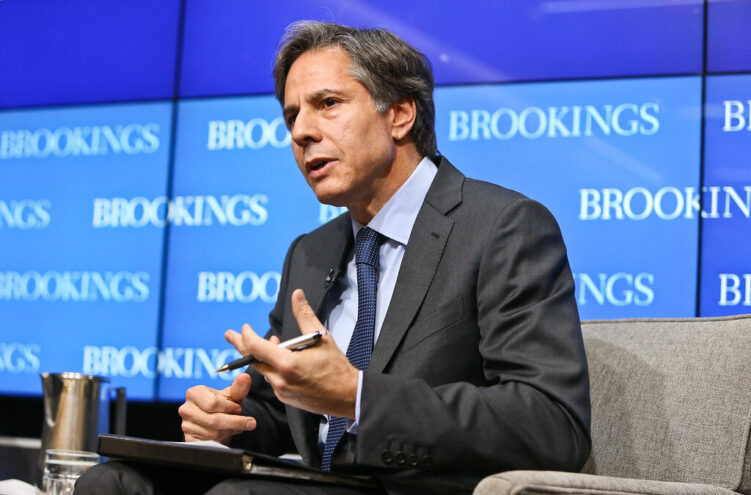
Blinken Tries to Win Back Gulf States as Houthis Threaten Oil
In a meeting on Tuesday with Abu Dhabi Crown Prince Sheikh Mohammed bin Zayed Al Nahyan, Secretary of State Antony Blinken attempted to mend hapless President Biden’s increasingly strained relationship with Gulf states.
Saudi Arabia and the United Arab Emirates (UAE) have both expressed increasing frustration with the Biden administration’s failure to address the potential global implications of the Yemeni civil war, which overflowed into Saudi Arabia last week as the Iran-backed Houthi terrorist organization bombed oil facilities belonging to the Saudi state oil corporation Aramco. Saudi officials have repeatedly warned that Houthi attacks on oil assets could threaten the global fuel supply at a time in which the war between Russia and Ukraine has triggered shortages and record-high prices.
The Houthi movement is a Shiite jihadist organization whose slogan is “Allahu Akbar, Death to America, Death to Israel, a Curse on the Jews, Victory to Islam.” President Biden freed the Houthis from their Foreign Terrorist Organization designation as one of his first acts in office last year.
Anonymous sources have reported that Saudi and Emirati leaders were simply refusing to schedule phone calls with Biden officials. Blinken met with Abu Dhabi Crown Prince bin Zayed on Tuesday in Morocco, but his tour notably omitted visits to the UAE or Saudi Arabia.
The Saudi news outlet Al Arabiya noted that Blinken told bin Zayed America was “determined to do everything we can to help you defend yourselves effectively against” the Houthi threat from neighboring Yemen.
“Gulf states have for years been frustrated at what they see as US inaction in confronting Iran’s role in the region, but their concerns have grown since Joe Biden became president 14 months ago,” Al Arabiya reported.
Urgency around the Houthi terrorists’ potential impact on global gasoline supplies skyrocketed last week after the group claimed responsibility for bombing several Saudi cities featuring oil storage and refining facilities. The attacks followed a similar series of bombings against civilian oil facilities throughout March.
The attacks, a Saudi government source told the state outlet SPA last week, “will affect the kingdom’s production capacity and its ability to fulfill its obligations, which undoubtedly threatens the security and stability of energy supplies to global markets.”